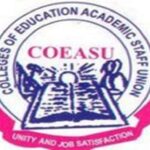A professor of Forensic Accounting at the Babcock University, Ilisan-Remo, Ogun State, Samuel Dada, has asked the Economic and Financial Crimes Commission (EFCC) to always engage forensic accountants in its investigations of corruption cases.
He also called for the strengthening of the legal framework of the anti-graft agency to ensure that courts apply the provisions of Section 19 Sub-section 2 of the EFCC Act, 2004, to enable them to accelerate their trials of corruption cases and without government undue interference.
Dada made these recommendations while delivering the 41st inaugural lecture of the university, recently.
Speaking on the topic, ‘The Forensic Accountant in a Global World of Corruption and Stunted Economic Growth,’ the scholar said that the engagement of the forensic accounting experts to serve as investigators or witnesses in financial corruption cases and good remuneration for the job would enhance the work of the agency.
According to him, such engagement would assist the court to reach a conclusion on corruption cases without undue delay.
Dada said not only should the government not interfere in EFCC operations, the agency should also not treat anyone no matter how highly placed in the society, as a sacred cow.
He said the anti-corruption campaign in Hong Kong for example, is recording a huge success not only because the officials of the anti-corruption agency of the country are well remunerated but because the agency is operating independently from the country’s police force and the civil service.
He urged the judiciary not to use technicalities to dismiss cases of corruption as in the case of former governor of Delta State, James Ibori, whose case was dismissed by a Nigerian court, but who was convicted for similar offence, by a court in the UK.
He said such disparity in judgment was an embarrassment to the Nigerian judicial system.
The don noted that the inclusion of ethics and forensic accounting in the curricula of tertiary schools would be a step in the right direction as such according to him would not only enhance effective professional training for accountants but would also create greater awareness and boost societal moral values in the country.
WATCH TOP VIDEOS FROM NIGERIAN TRIBUNE TV
- Let’s Talk About SELF-AWARENESS
- Is Your Confidence Mistaken for Pride? Let’s talk about it
- Is Etiquette About Perfection…Or Just Not Being Rude?
- Top Psychologist Reveal 3 Signs You’re Struggling With Imposter Syndrome
- Do You Pick Up Work-Related Calls at Midnight or Never? Let’s Talk About Boundaries






